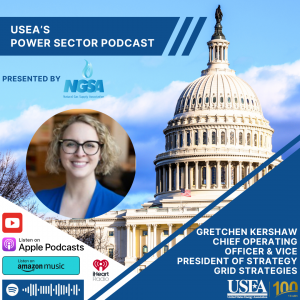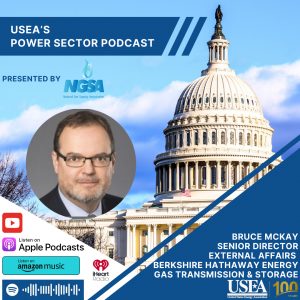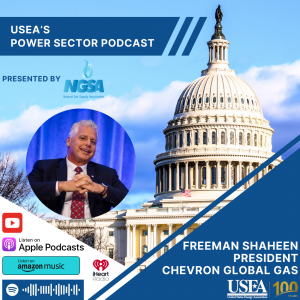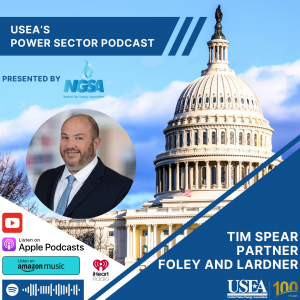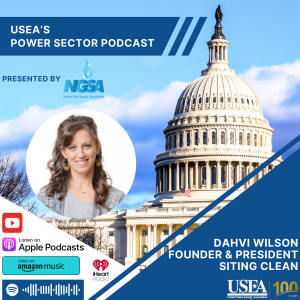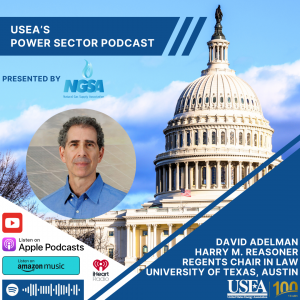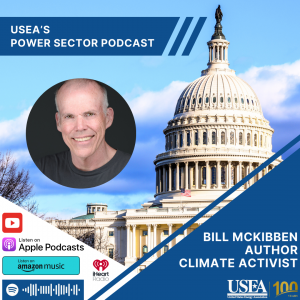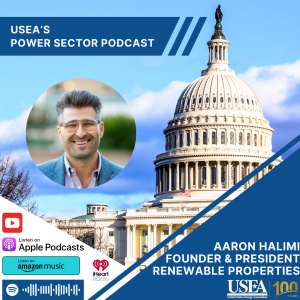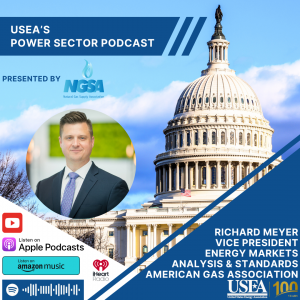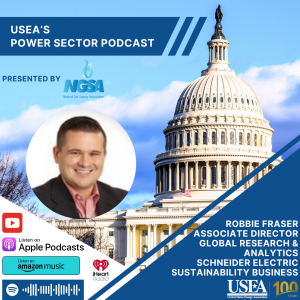September 5th, 2025
In today’s USEA Power Sector Podcast Grid Strategies Chief Operating Officer and Vice President of Strategy Gretchen Kershaw answered questions by journalist Herman K. Trabish about the need to streamline permitting for urgently needed new transmission and the legislative and regulatory efforts now in play to do that.
September 3rd, 2025
In today’s USEA Power Sector Podcast, Bruce McKay, SeniorDirector, External Affairs, for power provider powerhouse Berkshire Hathaway Energy’s subsidiary Gas Transmission and Storage, answered questions by journalist Herman K. Trabish about natural gas infrastructure permitting processes and how they can be streamlined.
August 28th, 2025
In today’s USEA Power Sector Podcast, Chevron Global Gas President Freeman Shaheen answered questions by journalist Herman K. Trabish about current factors and dynamics in US and global natural gas markets.
This episode is sponsored by the Natural Gas Supply Association. NGSA represents major integrated and large independent domestic producers of natural gas. It was established in 1965 and is headquartered in our nation’s capital.
August 26th, 2025
In today’s USEA Power Sector Podcast, powerhouse law firm Foley and Lardner Partner Tim Spear answered questions by journalist Herman K. Trabish about current market factors and dynamics and the newest trends in US and global natural gas and other energy markets.
August 22nd, 2025
In today’s USEA Power Sector Podcast, Dahvi Wilson, Founder and President of Siting Clean answered questions by journalist Herman K. Trabish about the lessons she has learned from real-world experience working with project developers and local stakeholders to bring energy projects online.
August 19th, 2025
In today’s USEA Power Sector Podcast, Professor David Adelman, who holds the Harry M. Reasoner Regents Chair in Law at the University of Texas, Austin, answered questions by journalist Herman K. Trabish about his breakthrough quantitative work on energy project permitting, which found the needed reforms are less in federal policy reforms than in state and local practices.
August 14th, 2025
In today’s USEA Power Sector Podcast, renowned climate activist and author Bill McKibben answered questions by journalist Herman K. Trabish about his perspective on current U.S. climate policy, his new Third Act movement, and his forthcoming book Here Comes The Sun about why the U.S. needs to accelerate the growth of solar energy.
August 12th, 2025
In today’s USEA Power Sector Podcast, Aaron Halimi, Founder and President of solar developer Renewable Properties, answered questions by journalist Herman K. Trabish about the impacts on solar project development of the just-passed budget bill’s tax credit and incentive changes.
August 7th, 2025
In today’s USEA Power Sector Podcast, American Gas Association Vice President of Energy Markets, Analysis and Standards Richard Meyer answered questions by journalist Herman K. Trabish about the new analysis, The Renewable Natural Gas Advantage, and the availability, cost, transport, and emissions reductions from renewable natural gas.
August 5th, 2025
In today’s USEA Power Sector Podcast, Schneider Electric Sustainability Business Associate Director of Global Research and Analytics Robbie Fraser answered questions by journalist Herman K. Trabish about market factors and trends in US and global natural gas markets.
Pages

